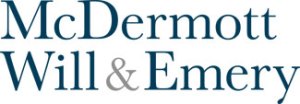The National Law Review recently published an article by Jacob Mattinson, Diane M. Morgenthaler, and Ruth Wimer, Esq., CPA of McDermott Will & Emery titled, 2013 Expiring and Changing Employee Tax Provisions:

With the fiscal cliff approaching in 2013, several favorable tax provisions affecting individuals and businesses are set to expire. These changes include an expiration of the lower federal income tax rates implemented under President Bush, a return of the “marriage penalty” and an expiration of an extensive list of previously extended temporary tax provisions. Given this tax uncertainty, employers must prepare for possible changes to payroll taxes, flexible spending account contribution limits, adoption assistance benefits and educational assistance benefits.
Payroll Taxes
The 2 percent payroll tax cut enjoyed in 2011 and 2012, which reduced the employee’s share of Social Security payroll taxes, will expire as of January 1, 2013. Specifically, this tax cut reduced the employee’s share of Social Security taxes from 6.2 percent to 4.2 percent on the first $110,100 of wages in 2012. A similar reduction from 12.4 percent to 10.4 percent applied to the income of self-employed individuals. Although the increase is on employee contributions, the increase also affects an employer’s withholding obligations. Furthermore, if an employer provides a gross-up of any type to an employee, such gross-up will be commensurately more expensive beginning in 2013.
At the same time that the temporary 2 percent decrease in employee payroll taxes expires, a new 0.9 percent Medicare payroll tax increase applies (from 1.45 percent to 2.35 percent) under the Patient Protection and Affordable Care Acton wages over $250,000 for married taxpayers filing jointly and $200,000 for single taxpayers. Self-employed individuals will have a similar increase in self-employment tax liability. Although this increased rate of tax is not an employer liability, employers must be prepared to withhold the additional 0.9 percent from wages for any employee with wages over $200,000. Because this withholding is required on an employee’s wages over $200,000, which does not particularly correlate with an employee’s ultimate tax liability, many employees, particularly those who are married, may find that they are over- or under-withheld, depending upon the earnings of their spouse. For example, if a husband and wife each earn $200,000, with joint wages totaling $400,000, this couple will be under-withheld because their respective employers will withhold nothing. However, the additional 0.9 percent tax for them is owed on combined wages over $250,000, resulting in an under-withholding of $1,350 ($150,000 times 0.9 percent).
Qualified Adoption Assistance
The income tax exclusion for amounts paid by an employer under a qualified adoption assistance program is also set to expire on December 31, 2012. A qualified adoption assistance program allows an employer to reimburse an employee on a tax-free basis for as much as $12,650 in 2012 for expenses related to the adoption or attempted adoption of a child. Qualified adoption expenses include reasonable and necessary adoption fees, including court costs, attorney fees, traveling expenses (including amounts spent for meals and lodging while away from home) and other expenses directly related to the legal adoption of an eligible child.
Flexible Spending Account Contributions
Employee contributions to health care flexible spending accounts will be reduced to $2,500 per year for plan years beginning in 2013. Prior to 2013, the tax code did not limit health care flexible spending account contributions. This new limit must be documented in a flexible benefits plan by December 31, 2014, regardless of the fiscal year of the flexible benefits plan, and this change must be retroactive to the beginning of the 2013 plan year.
Educational Assistance
Certain reimbursements for employer-provided educational assistance will expire at the end of 2012. Section 127 of the Internal Revenue Code allows an employer to reimburse an employee on a tax-free basis up to $5,250 for certain educational expenses provided through a non-discriminatory educational assistance program, including reimbursements for graduate school and programs that allow the employee to qualify for a new position. Even if employer-provided educational assistance programs no longer have tax subsidies in 2013, employers can still provide some type of educational reimbursements in a more limited manner if the educational reimbursements qualify as a business expense and meet certain requirements, such as enhancing the employee’s performance but not qualifying the employee for a new position or career.
Next Steps
With the uncertainty of the approaching fiscal cliff, employers should consider advising employees of the ambiguity surrounding educational assistance and adoption assistance benefits for 2013 and the possibility of a 2 percent payroll tax increase. However, even if tax extensions for education assistance, adoption assistance and the 2 percent payroll tax increase are adopted in a new tax bill, employers should note that it is highly unlikely that either the new limits on health care flexible spending accounts or the new 0.9 percent payroll tax increase for high-income employees will be altered or eliminated.
© 2012 McDermott Will & Emery
Like this:
Like Loading...








